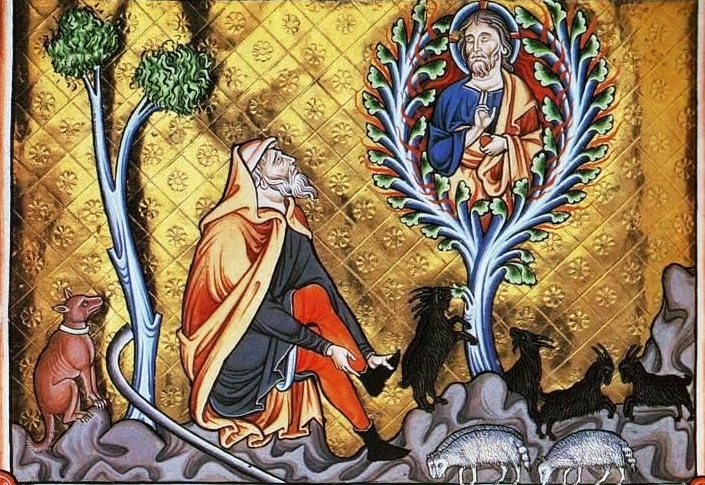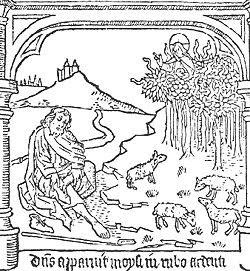Jax wrote: ↑Thu Jan 06, 2022 12:36 pm
Secret Alias wrote: ↑Thu Jan 06, 2022 12:25 pm
why are Justin and Origen bothering to argue that it is indeed the name for IC in the first place"?
They aren't 'arguing.' Read the passage in Origen. If he was arguing it might have been picked up by scholars. He's just spelling out a Hebrew sentence (mostly to show he can read Hebrew because Africanus was fluent in many languages). Justin is just explaining - not arguing - what Christ's name meant. He says it means two different things in Greek and Hebrew.
Ok, 'arguing' isn't perhaps the right way of saying it but my point is, why would they need mention it in the first place? I mean if it was so obvious and known to everyone there would need be no reason to belabor the point. Would there?
No, because the points you take Origen and Justin to be making have little to do with the points they are actually trying to make in the texts cited.
Origen does not 'mention it in the first place'. He is not writing about the name Jesus nor about any concept of the Messiah, Logos, Second God, or related concept. He is arguing, against Julius Africanus, that the so-called additions to Daniel which are known in the Greek but not the Hebrew text, are not spurious, as Africanus took them to be, and argues that the translators may have chosen Greek words that had some analogical similarity to the Hebrew text rather than translating the Hebrew directly in all cases. Nothing christological about it.
12. I had nearly forgotten an additional remark I have to make about the prino-prisein and schino-schisein difficulty; that is, that in our Scriptures there are many etymological fancies, so to call them, which in the Hebrew are perfectly suitable, but not in the Greek. It need not surprise us, then, if the translators of the History of Susanna contrived it so that they found out some Greek words, derived from the same root, which either corresponded exactly to the Hebrew form (though this I hardly think possible), or presented some analogy to it. Here is an instance of this in our Scripture. When the woman was made by God from the rib of the man, Adam says, She shall be called woman, because she was taken out of her husband. Now the Jews say that the woman was called Essa, and that taken is a translation of this word as is evident from chos isouoth essa, which means, I have taken the cup of salvation; and that is means man, as we see from Hesre aïs, which is, Blessed is the man. According to the Jews, then, is is man, and essa, woman, because she was taken out of her husband (is). It need not then surprise us if some interpreters of the Hebrew Susanna, which had been concealed among them at a very remote date, and had been preserved only by the more learned and honest, should have either given the Hebrew word for word, or hit upon some analogy to the Hebrew forms, that the Greeks might be able to follow them. For in many other passages we can find traces of this kind of contrivance on the part of the translators, which I noticed when I was collating the various editions (Origen, Letter to Africanus).
https://www.newadvent.org/fathers/0414.htm
In chapter 33 of the First Apology, Justin is discussing the birth narratives in Matthew and Luke and explaining the meaning of Matthew 1.21 (the first part of which is paralleled in Luke 1.31), "She will bear a son, and you are to name him Jesus, for he will save his people from their sins.' He takes the verse to be claiming that the name Jesus contains the meaning that he will save (someone), and tries to explain how that is so:
And hear again how Isaiah in express words foretold that He should be born of a virgin; for he spoke thus: Behold, a virgin shall conceive, and bring forth a son, and they shall say for His name, 'God with us.' Isaiah 7:14 For things which were incredible and seemed impossible with men, these God predicted by the Spirit of prophecy as about to come to pass, in order that, when they came to pass, there might be no unbelief, but faith, because of their prediction. But lest some, not understanding the prophecy now cited, should charge us with the very things we have been laying to the charge of the poets who say that Jupiter went in to women through lust, let us try to explain the words. This, then, Behold, a virgin shall conceive, signifies that a virgin should conceive without intercourse. For if she had had intercourse with any one whatever, she was no longer a virgin; but the power of God having come upon the virgin, overshadowed her, and caused her while yet a virgin to conceive. And the angel of God who was sent to the same virgin at that time brought her good news, saying, Behold, you shall conceive of the Holy Ghost, and shall bear a Son, and He shall be called the Son of the Highest, and you shall call His name Jesus; for He shall save His people from their sins, Luke 1:32; Matthew 1:21 — as they who have recorded all that concerns our Saviour Jesus Christ have taught, whom we believed, since by Isaiah also, whom we have now adduced, the Spirit of prophecy declared that He should be born as we intimated before. It is wrong, therefore, to understand the Spirit and the power of God as anything else than the Word, who is also the first-born of God, as the foresaid prophet Moses declared; and it was this which, when it came upon the virgin and overshadowed her, caused her to conceive, not by intercourse, but by power. And the name Jesus in the Hebrew language means Σωτήρ (Saviour) in the Greek tongue. Wherefore, too, the angel said to the virgin, You shall call His name Jesus, for He shall save His people from their sins. And that the prophets are inspired by no other than the Divine Word, even you, as I fancy, will grant. (Justin, First Apology, 33)
https://www.newadvent.org/fathers/0126.htm
Marcovich's case is based on his claim that there is a lacuna in the text, which, if I am understanding this correctly, he conjecturally emends by adding the word ἄνθρωπος ('man'), which is not found in the manuscripts.

- Marcovich - Notes on Justin - Jesus as Man .png (135.04 KiB) Viewed 1647 times
Miroslav Marcovich, Notes on Justin Martyr's Apologies, Illinois Classical Studies 17.2 1992.
Other editors and translators have not found it necessary to emend the text the way Marcovich does, nor to understand First Apology 33.7 or Second Apology 6.4 as he does.
Best,
Ken







